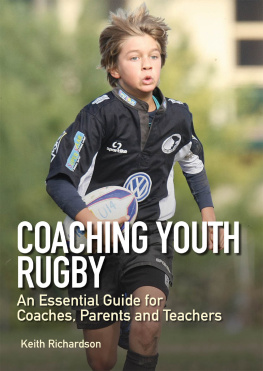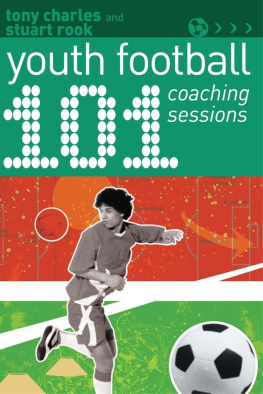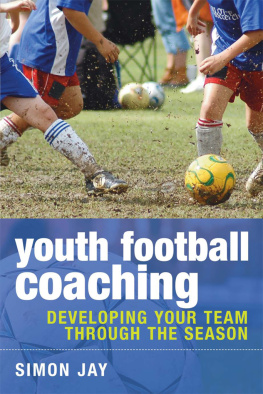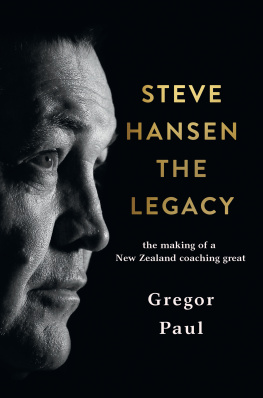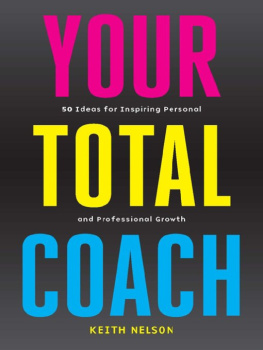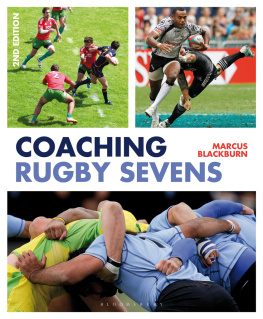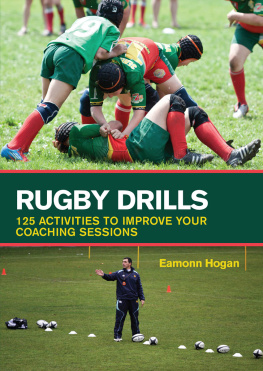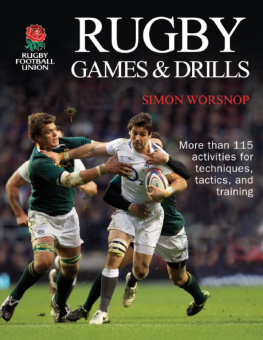Keith Richardson - Coaching Youth Rugby
Here you can read online Keith Richardson - Coaching Youth Rugby full text of the book (entire story) in english for free. Download pdf and epub, get meaning, cover and reviews about this ebook. publisher: Crowood, genre: Children. Description of the work, (preface) as well as reviews are available. Best literature library LitArk.com created for fans of good reading and offers a wide selection of genres:
Romance novel
Science fiction
Adventure
Detective
Science
History
Home and family
Prose
Art
Politics
Computer
Non-fiction
Religion
Business
Children
Humor
Choose a favorite category and find really read worthwhile books. Enjoy immersion in the world of imagination, feel the emotions of the characters or learn something new for yourself, make an fascinating discovery.
- Book:Coaching Youth Rugby
- Author:
- Publisher:Crowood
- Genre:
- Rating:4 / 5
- Favourites:Add to favourites
- Your mark:
- 80
- 1
- 2
- 3
- 4
- 5
Coaching Youth Rugby: summary, description and annotation
We offer to read an annotation, description, summary or preface (depends on what the author of the book "Coaching Youth Rugby" wrote himself). If you haven't found the necessary information about the book — write in the comments, we will try to find it.
Coaching Youth Rugby — read online for free the complete book (whole text) full work
Below is the text of the book, divided by pages. System saving the place of the last page read, allows you to conveniently read the book "Coaching Youth Rugby" online for free, without having to search again every time where you left off. Put a bookmark, and you can go to the page where you finished reading at any time.
Font size:
Interval:
Bookmark:

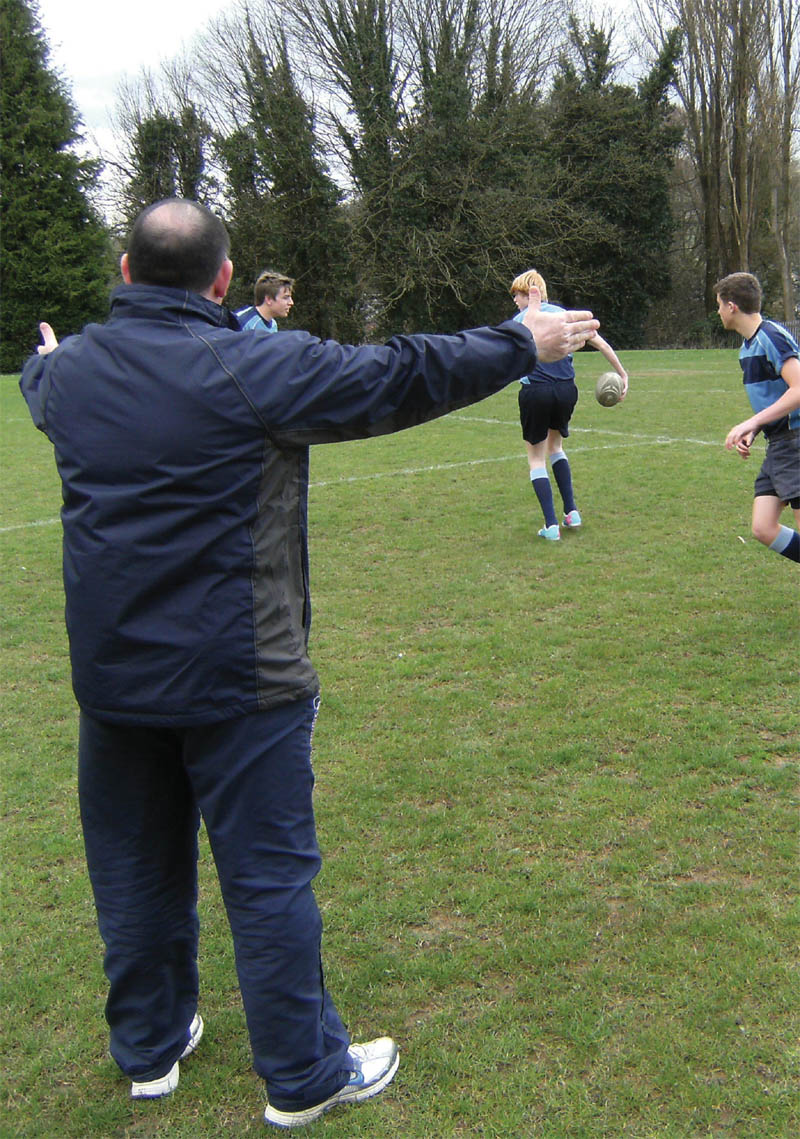
COACHING YOUTH
RUGBY
An Essential Guide for
Coaches, Parents and Teachers
Keith Richardson

First published in 2014 by
The Crowood Press Ltd
Ramsbury, Marlborough
Wiltshire SN8 2HR
www.crowood.com
This e-book first published in 2014
Keith Richardson 2014
All rights reserved. No part of this publication may be reproduced or transmitted in any form or by any means, electronic or mechanical, including photocopy, recording, or any information storage and retrieval system, without permission in writing from the publishers.
British Library Cataloguing-in-Publication Data
A catalogue record for this book is available from the British Library.
ISBN 978 1 84797 612 3
Acknowledgements
Thank you to the following for their help and support in the preparation of this book: Martin Kimber, Wycliffe College; Julian Brammer, Haileybury; Dave Spencer, Stroud Rugby Club; Mark Nicholson, Marling School; Hartpury College Rugby Club; Simon Lane, Gloucester Rugby; Ian Smith, RFU L4 coach; Tom Burwell.
Note
Throughout this book, the pronoun he has been used for the sake of convenience. However, the author and publishers would like to point out that all the activities in this book are equally applicable to both male and female players.
CONTENTS
PREFACE
Coaching Youth Rugby serves as a guide for those just starting out coaching young rugby players, as well as seasoned coaches who are dealing with players after non-contact rugby. In addition to helping teach fundamental rugby skills and plan enjoyable coaching sessions, Coaching Youth Rugby presents field-tested, age-specific coaching information to help coaches learn how to communicate with players, parents, other coaches and officials. It will also teach coaches how to manage their team on match days, including measures to provide for safety and for administering basic first aid.
Whatever their experience or aspirations, this book will enable readers to fulfil the responsibility of all youth, age group and adult rugby coaches: to nurture and develop the young athletes who are the future of rugby, and to develop sound coaching knowledge for when those young players develop.
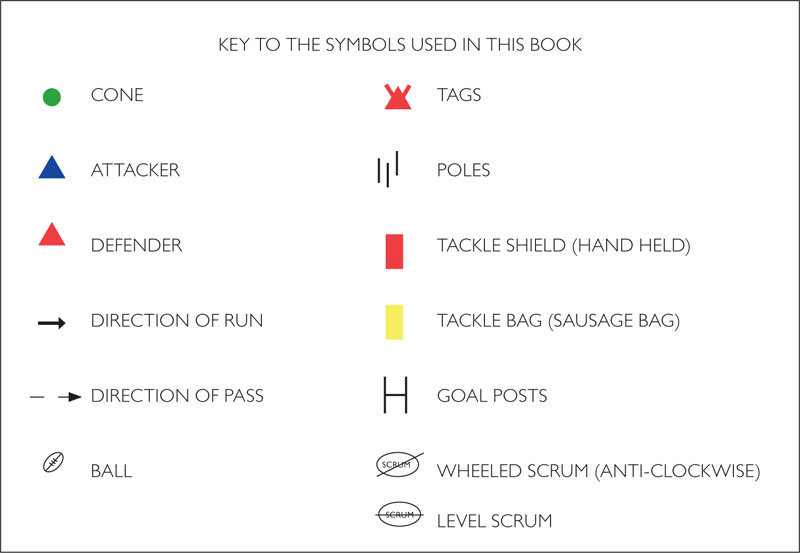
INTRODUCTION: LET THE GAME BE THE TEACHER
Well soon coach that out of him!
I was once helping out at a coaching holiday course, and a game of touch was going on with one group and we all (the coaches, anyway) simply had to stop what we were doing to watch what was unfolding before our eyes. One of the young players was dazzling he simply hypnotized the opposition, and continually made breaks, then fed his team with exquisite passes. It was a master class in what the running game was all about and then a fellow coach next to me came out with the immortal Well soon coach that out of him!
This coach was not, however, a disciple of contact rugby of grinding, forward-dominated rugby that is developed from drills-based coaching; he was, and is, an exponent of attacking with ball in hand, and he is very gifted in developing and nurturing players running, handling and passing skills. Unfortunately he might have put his finger on a serious problem in how rugby is introduced and coached in the early stages.
When I was a young teacher I watched two Welsh schoolmasters introduce young players to rugby. The organization was superb, and the technical knowledge imparted was impressive, and the boys soon found out all about the skill of passing this oddly shaped ball. But they were sitting down in very strictly controlled lines of four, and it took forever for the teachers to let them run and handle and even then, the activity was constantly stopping so that a technical point could be made by Sir(s).
This may not have put the pupils off the game forever, but it must have served to imprint on their early awareness that the game is all about organization, straight lines and instruction when actually it isnt. Even the best organized drill session tends to come to a shuddering halt when some poor player passes badly and/or drops the ball and the majority are then waiting around again instead of being active.
Another coaching memory still makes me cringe: I, a coach with a fair amount of experience of coaching at the top end of the game, had been invited to take part in a rugby day for very young players, and the eager-eyed boys and girls were raring to go until yours truly started. I had planned a handling session to beat all handling sessions, but unfortunately the little dears did not know what I was talking about, and gave me withering looks of incomprehension and pity.
My handling plan was clearly as much use as a chocolate teapot, and this was obvious after about two minutes with fifty-eight to go! The only solution was to scrap the considered Plan A and somehow think of a Plan B very quickly. The answer was a very simple game of modified touch where you can pass in any direction. The rules were made up as we went along, and I suddenly saw the light: young players want to play games, and the coach can facilitate this desire and get the basics of the game across if and when the technical aspect is called for.
Hopefully the young players remembered the coaching advice that I tried to add to the little game with encouraging comments instead of the first aborted attempt at getting too complex a drill arranged but it did teach me a valuable lesson. And I am fairly sure that many coaches of young players will empathize with this. We do enjoy drills and the coaching of specific skills with lots of detail and precision, possibly because such a session is relatively easy to set up and the elements that go wrong are generally predictable. But when do coaches concentrate on game understanding and players flair and intuitive skills?
It is very easy to coach out flair and intuition, yet no coach will ever deliberately try to achieve such a negative result. However, many well-meaning coaches might never plan the sort of session that could develop these rich skills because the type of session that may let them develop can go very badly wrong.
Unfortunately the package of drills is safe, predictable and manageable, and might, at first glance, seem to be doing a very well organized job. The session that is full of small games to develop understanding does not have the safety net of certainty and/or predictability but when the coach develops the confidence to unleash his players into such sessions, they can benefit enormously. Such games will allow them to explore the possibilities and opportunities with a rugby ball, and they will become more quickly aware of the required skills and their own capabilities.
This book aims to offer advice on how and why, as well as offering drills and practices; it suggests that newcomers to the game might learn more from games for understanding than they ever will through a package of drills. Some of it you probably follow anyway, but many coaches out there are parents who are doing the job simply because their child is playing and there are no other coaches around to run the sessions. These volunteers deserve a medal, but it is vital that these same people have a basic understanding of the rudiments of the game alongside a sensible philosophy on what they are trying to achieve, and how they can best make a positive contribution.
Font size:
Interval:
Bookmark:
Similar books «Coaching Youth Rugby»
Look at similar books to Coaching Youth Rugby. We have selected literature similar in name and meaning in the hope of providing readers with more options to find new, interesting, not yet read works.
Discussion, reviews of the book Coaching Youth Rugby and just readers' own opinions. Leave your comments, write what you think about the work, its meaning or the main characters. Specify what exactly you liked and what you didn't like, and why you think so.

